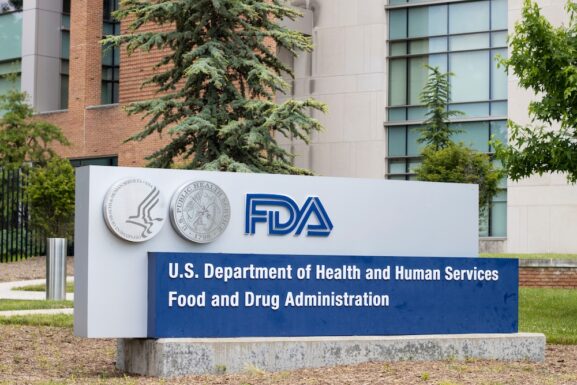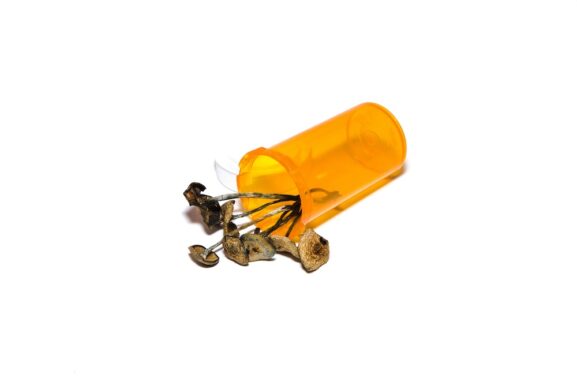10-Minute Mushroom Trip? New Psilocybin IV Depression Treatment Could Be a Game Changer
Remember when taking magic mushrooms meant setting aside an entire day for deep introspection? The traditional psychedelic experience was long, intense, and often a personal journey of discovery. But a new approach might just change that—and turn an all day psilocybin experience into a quick, but effective, 10-minute mushroom trip.
New: Interested in Being Part of a Psychedelics-Focused Clinical Trial? Sign Up Here
Beckley Psytech’s Groundbreaking Trial
Beckley Psytech, a biopharma company, has tested a new intravenous (IV) formulation of psilocin, the active compound in magic mushrooms, in a Phase 2a clinical trial. The results are promising for patients suffering from major depressive disorder.
Instead of the usual 8 hours of soul-searching, patients received the treatment via IV for just 10 minutes. And the effects? Immediate and profound.
Looking for treatment? Find ketamine clinics closest to you as well as other psychedelic therapies in your area.
Here’s a breakdown of the Beckley Psytech study results and how they compare to traditional magic mushroom experiences
| Aspect | Beckley Psytech IV Psilocin Study | Traditional Magic Mushroom Experience | Impact on Legalization/Psilocybin Therapy |
|---|---|---|---|
| Treatment Duration | 10-minute IV infusion | 4-8 hours oral ingestion | Shorter treatment time makes it easier to integrate into clinical workflows, increasing the feasibility of broader use. |
| Effect Onset | Immediate effects (depression scores drop by 25 points by the next day) | Gradual onset, typically within 30-60 minutes | Quick relief may make psilocybin therapy more appealing for patients and clinicians, supporting faster adoption. |
| Full Remission | 4 out of 6 patients achieved full remission within 24 hours | Full remission is rare and typically occurs after long sessions and integration | The fast, measurable impact could lead to stronger arguments for psilocybin’s efficacy in clinical settings. |
| Recovery Time | Patients are ready to leave the hospital in about 2 hours | Recovery can take several hours to a full day, depending on the individual | Reduced recovery time could make psilocybin therapy more accessible and less disruptive to patients’ lives. |
| Sustained Benefits | Effects lasted for up to 3 months | Benefits may last a few days to weeks, with the need for repeated sessions | Long-lasting effects could make psilocybin a more effective treatment for depression, possibly encouraging wider acceptance and integration. |
| Practical Application in Healthcare | Fits into existing ketamine clinic protocols (rapid and efficient) | Requires specially trained therapists and dedicated space for long sessions | A treatment like this could help psilocybin become more mainstream, aligning with current clinical practices. |
| Regulatory Impact | Supports faster integration into healthcare, possible for broader use | Longer sessions and intensive therapy make it harder to scale | This study’s positive results with a quicker treatment timeline could support faster regulatory approval and broader psilocybin legalization. |
Why Does This Matter?
You might be wondering, how significant is this? After all, the trial involved just 6 participants and lacked a placebo group. However, the real breakthrough here isn’t just the results—it’s the practical application.
Psychedelic therapy is often seen as impractical due to the need for long sessions, specialized therapists, and controlled environments. But with Beckley’s IV treatment, psilocin could fit seamlessly into existing mental health practices, just like ketamine does today.
Psychedelic AI is Here! Try out the beta version of HealingChat, HealingMaps AI chatbot that takes all our vetted content, clinics and retreats to answer all your questions in a safe environment. Try the beta version now!
The Future of Psychedelic Medicine
Is this the future of psychedelic medicine? If the goal is to integrate psychedelics into mainstream mental health care, Beckley’s approach could pave the way. While the research is still in early stages, it’s a promising sign that psychedelics might soon be more accessible to those who need them most.



